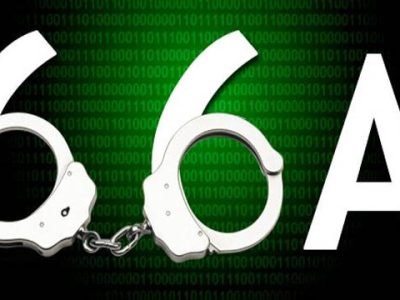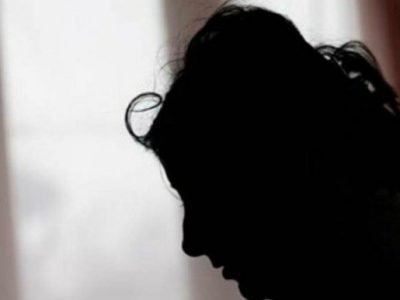
Author: Anshika Tyagi, 1st year student at Maharashtra National Law University, Mumbai.
The case of George Flyod that displayed the brutality and inhumanness of police received worldwide attention with everyone criticizing and condemning it deeply and demanding justice for Floyd and conviction of the police officer through protests, campaigns, street marching. This incident enraged the public across the world and brought into light the issue of custodial deaths not only in the US but in general. People in India also condoned this cruel act and supported all the protests and an action against this act of police brutality. But isn’t it hypocritical when we raise our voice against such brutality happening anywhere in the world but remaining silent or unresponsive when everybody eyes on India for an action. According to the data from National Human Rights Commission, 1067 persons died during the first five months of the year 2021 in custodial custody.[1] This suggests that during that period 6 persons died every day while they were in custody. This should serve as an immediate eye opener about the dark reality in the midst of which we all are living.
Custodial Violence
It is the violence that takes place in police and judicial custody through mental and physical torture. Though in most of the cases of custodial deaths, the reasons cited are other than custodial violence and torture but out of all the reasons like unhygienic conditions, malnutrition, lack of medical and health care in prisons and lockups, custodial death is mainly attributed to custodial violence as an open secret, which is a gross violation of human rights in a country which is the world’s biggest democracy. Various instances of such human rights violations during investigations to record confessions, secure evidences so much so that at times even third-degree level of torture being used, have been reported by social activists which are just labeled as ‘interrogations’. In a country which is governed by rule of law, confers fundamental rights to its citizens some of which cannot be even withheld from them even at the times of emergency, misuse of power and authority to establish superiority or suppress truth and creating obstacles in the path of justice portrays custodial torture, which at times leads to death, as one of the worst form of crime in a democratic country.[2]
A report by National Campaign on Torture named “India: Annual Report on Torture 2020” was released in March 2021 which showed that there has been rise in custodial deaths in comparison with the previous year. The report also highlighted that every week there has been more than 1 suicide due to custodial torture and violence.[3]
Current Scenario: A Doomed Reality
The custodial deaths include those in (i) police custody (ii) judicial custody. Judicial custody is the one where the accused is sent to the prison and for any investigation, the police is required to have jail authorities’ permission. So the deaths during this period in jail are called death during judicial custody.[4]
Even more disheartening fact is that the convictions for custodial violence have been very few. Report by the National Crime Records Bureau (NCRB) for the year between 2001 and 2018, it was brought to notice that despite 1727 cases of custodial deaths due to custodial violence as per the records, there was conviction of only 26 policemen. This is the scenario where many such cases are not even reported.[5]
Police brutality has become a widespread practice during investigations and interrogations from suspects to extract forced confessions and manipulate the statements, evidence and truth. As per the data of National Crime Records Bureau, in 2017 about 100 persons died while they were in police custody but to great disappointment, there was not even a single case of conviction.[6]
Data released in a report in 2016 by Human Rights Watch on arrest steps & process, custodial deaths, compensation to victims family, revealed that the cases of custodial deaths during police custody were misreported as deaths due to natural causes, any illness or as suicide.[7]
A report recently released by a rights body against custodial torture in all the countries revealed a harsh reality of the issue with respect to India. It revealed that in 2019, 1731 people died in custody and even more disturbing fact being revealed was that most of these people belonged to the vulnerable communities and disadvantaged section of the society including Muslims and Dalits, The report even disclosed the use of horrifying methods of torture being used on them while they were under the custody. People who are socially backward, financially weak and lack any kind power or affiliations are the victims of this gruesome act, which is practiced blatantly across the country.[8] Most of these people were tortured without any formal charges and even the most of the ones who were arrested were the cases of petty offences. The important considerations during such cases become the factors like caste, political connections, monetary benefits, personal enmity rather than proper investigations. The criminal records are themselves the proof of how unjustly some particular sections of the society are particularly targeted during custody. As per the annual report on torture in 2019, 125 people died in police custody in 2019 and out of them 60% were poor and from marginalized section like Adivasis, Muslims and Dalits. Most of them were the daily wage workers, security guards and small farmers who were accused of petty crimes such as burglary and theft.[9]
Few instances of Police Brutality
On June 23, 2021, police barbarically killed a man in Tamil Nadu to death for infringing lockdown rules. Very recently, 3 members of a family in Goa, who were accused of theft, committed suicide due to alleged police torture.[10]
A prisoner named Nabbir in Tihar Jail complained in April 2019 about a superintendent forcibly burning the ‘Om’ symbol on his back. In district of Darrang in Assam, in 2019, a pregnant lady accused of kidnapping was picked up by the police after which she had a miscarriage as she was kicked in her belly by the police. Thus she lost her child as a result of the brutal police treatment.[11]
On June 19, 2020 a father-son duo was arrested for allegedly infringing the lockdown norms by keeping their shops open after the permitted time in Tamil Nadu. Two days after their arrest, both of them died of police torture. This enraged the people, there was a lot of outrage, condemning and sheer criticisms of this police brutality on social media. This incident pulled everybody’s attention towards the issue of custodial deaths. After a preliminary analysis of the injuries over the bodies of the deceased and the report by judicial magistrate, Madras High Court ordered investigation against the involved police officers after which until now, 5 policemen are arrested and a case of murder has been registered.[12]
Legal Analysis
The Hon’ble Supreme Court in the case of Nilabati Beher has contended that the prisoners, convicts or accused under trials are not devoid of their fundamental rights as per art. 21 of the constitution. It asserted that the prison and jail authority has the responsibility to take care of the security of the person in custody and that he is not deprived of his fundamental right of life. It is the duty of the state to ensure that art. 21 is not denied to anyone. Not only this under the unfortunate scenario of custodial death, the state is under the obligation to provide compensation to the next of kin of the person who became a victim of custodial death. In furtherance to this only, since the prisoners are under the custody of the state, for any negligence or violation of rights or rules, the state would be held vicariously responsible for the act of Jail Authority.[13]
SC order of 2006 paved the way for setting up of a police complaint authority which gives every individual the freedom and a means through which they can report the cases of police misconduct. But again except for a few states, it is just serving as a piece of paper without any due consideration for it.[14]
The case of Prakash Singh vs. UOI (2006) and D.K Basu vs. State of West Bengal (1997) lay important guidelines with respect to duties of police personnel. But its implementation portrays a dismal picture.
The arrested persons have fundamental rights as mentioned under article 20 and 22 of the Constitution along with art. 21, which vouches for life and liberty. At International level, the art. 7 of the covenant on civil and political rights confers the right that no individual would be subjected to and treated with any form of torture, cruelty and brutal or inhumane and degrading punishment.
A draft of ‘The Prevention of Torture Bill 2017’ was created by the 273rd Law Commission Report of India. But not much attention has been paid to it by the states.[15]
Conclusion
In response to the George Floyd case, a police reforms act which was named after Flyod was passed by the US House of Representatives. The police officer was also awarded imprisonment of 22.5 yrs within the period of one year after that incident. June 2021 marked one year of police brutality in the aforementioned case of father-son due which received outrage on the social media but despite that there has not been a serious step in the form of guideline or any regulation or law towards preventing future cases of custodial deaths due to police brutality.
In an exceptional case of police conviction, in Kerala, CBI court gave capital punishment to 2 Kerela Police officers for death of young person named Udayakumar in 2005 due to the inhumane custodial torture. Such rare convictions alone do not offer any solution to custodial violence and deaths.[16]
Custodial death must not be dealt in isolation as here the law enforcement agencies are themselves the violence perpetrators and it displays the ominous abuse of power and authority conferred upon them. It is necessary that the impunity given to police personnel must not be exercised in an absolute form but should be strictly regulated. There is an urgent requirement of structural reforms like training programmes for police which also includes focus on human rights, dismantling established discriminatory mindset so that the safety of all individuals is ensured and justice is delivered.
References
[1] Sana Shakil, Stan Swamy’s demise brings custodial deaths to focus : tally over 1000 in last six months, New Indian Express (Jul. 11, 2021, 09:49 a.m.), https://www.newindianexpress.com/thesundaystandard/2021/jul/11/stan-swamys-demise-brings-custodial-deaths-into-focus-tally-over-1000-in-last-six-months-2328330.html.
[2] Yash Tyagi, Custodial Deaths in India:An Analysis, Legal Desire (Jul. 23, 2019), https://legaldesire.com/custodial-deaths-in-india-an-analysis/.
[3] Navjeet Puniya,Sathankulam deaths: A year on, scourge of custodial violence in India remains unabated, National Herald (Jul. 12, 2021, 09:00 p.m.), https://www.nationalheraldindia.com/india/sathankulam-deaths-a-year-on-scourge-of-custodial-violence-in-india-remains-unabated.
[4] Yash, supra note 2.
[5] Custodial Violence, Byjus, https://byjus.com/free-ias-prep/custodial-violence/.
[6] Arsheen Kaur, Custodial Deaths in India are a cold blooded play of power and class, The Wire (Jul. 14, 2020), https://thewire.in/rights/custodial-deaths-in-india-are-a-cold-blooded-play-of-power-and-class.
[7] Ibid.
[8] Arsheen, supra note 6.
[9] Navjeet, supra note 3.
[10] Navjeet, supra note 3.
[11] Arsheen, supra note 6.
[12] Arsheen, supra note 6.
[13] Yash, supra note 2.
[14] Arsheen, supra note 6.
[15] Navjeet, supra note 3.
[16] Navjeet, supra note 3.







